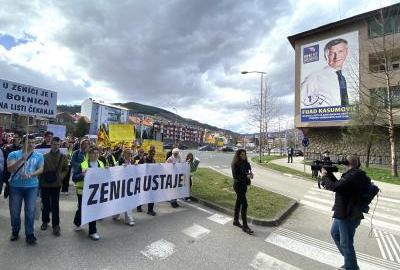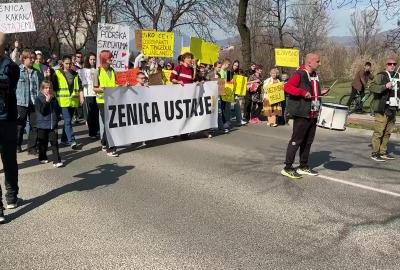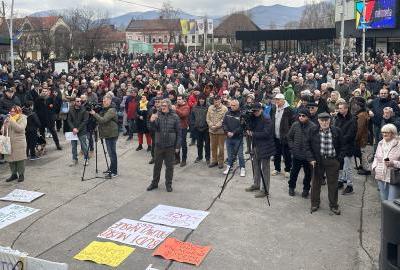Žurnal in English
MINING IN BIH: Underground mines pending closure, there are no innocent for the social catastrophe
One way or another, there will be less and less underground coal exploitation in Bosnia and Herzegovina. For years now, the authorities have "pushed" this problem under the carpet for the sake of seemingly worn-out reason, social peace. The European market is looking for electricity from clean sources and sooner or later Bosnia and Herzegovina will have to comply
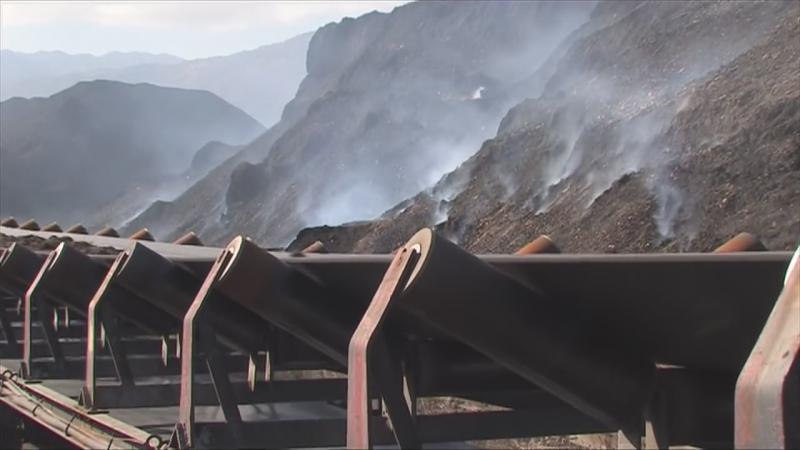
Due to environmental reasons, the countries of the European Union are rapidly shutting down coal-fired thermal power plants and switch to other, so-called clean or renewable sources of electricity. They expect the same from Bosnia and Herzegovina, whose bulk of production is based on thermal power plants, which are actually not closing, but opening of new units is planned. The CO2 tax that will soon be added to the price of electricity will mean lack of competitiveness in the international market.
Three largest mines with surface exploitation in Republika Srpska, Gacko and Ugljevik, which belong to the concern of Elektroprivreda RS, and Stanari, owned by the private company EFT, are “leaning” on the eponymous thermal power plants.
The situation is complicated in Federation of BiH, particularly in the social segment. A number of mines, primarily underground mines, must be closed due to unprofitability. The common denominator, regardless of the entity location, is over-employment by party affiliation and dubious tenders that are also directed by the parties, contributing to the financial dubiousness of the mine.
“Due to the production bottlenecks and the decline in revenues in the coal mine “Kreka” Tuzla, and in line with the provisions of the Labor Law and the Rules of Procedure we are forced to suspend the operations starting from April 1, 2021 until the improvement of situation in the company. Therefore, it is necessary to submit the lists of employees whose employment will be suspended in April, taking into account the needs of the operations, i.e. the needs of the immediate production process. Please note that lists will be made every month in order to rotate the employees, having in mind that their employment will be suspended for a month at the time.”
It's not an April Fool’s prank. This is part of a letter recently received by the directors of Dubrava, Šikulja and Mramor mines within Coal Mine Kreka. It is not known how this “suspension of operation” will work in practice. There are employees, even managers, within the mine who are not satisfied with these measures, and the Mining Trade Union still has not reacted. The cover of the Kreka’s website still shows the advertisement for the last year’s summer vacation in Podgora, in a hotel owned by this mine.
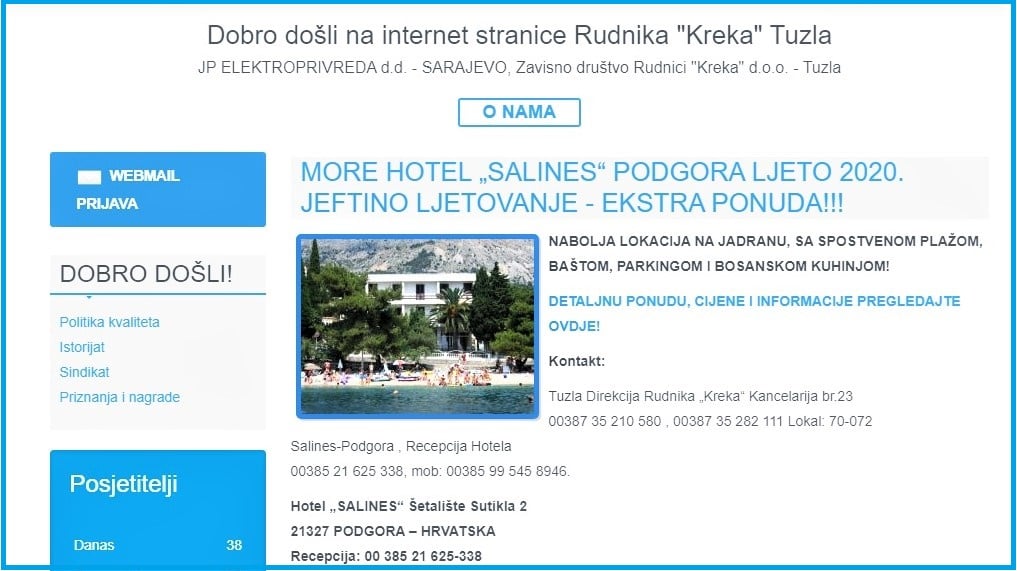
The one-month “shutdown” is just an introduction to what follows. The deadline for exploitation of “black gold”, especially from underground mines, is getting shorter.
Elektroprivreda BiH, as the owner of seven coal mines - Kreka, Đurđevik, Kakanj, Zenica, Breza, Gračanica and Abid Lolić, has prepared a proposal of a new staff establishment plan in these mines, which entails dismissal of 2.000 to 2.300 employees out of total 11.000 employees. This relates more to administrative, technical and support personnel than the miners, underground workers. There is less talk of miners, cave workers than, above all, of administrative, technical staff and support staff. For now, all seven trade union organizations have resolutely rejected the proposal, reminding that there are unnecessary positions in Elektroprivreda as well.
“We demand that any surplus employees; in our union there is no surplus; be taken care of in a socially acceptable way or as in 2002 and 2004 in Elektroprivreda BiH,” said Abdel Fazlić, president of the Brown Coal Mine Kakanj Trade Union, which should have 500 “surplus employees”.
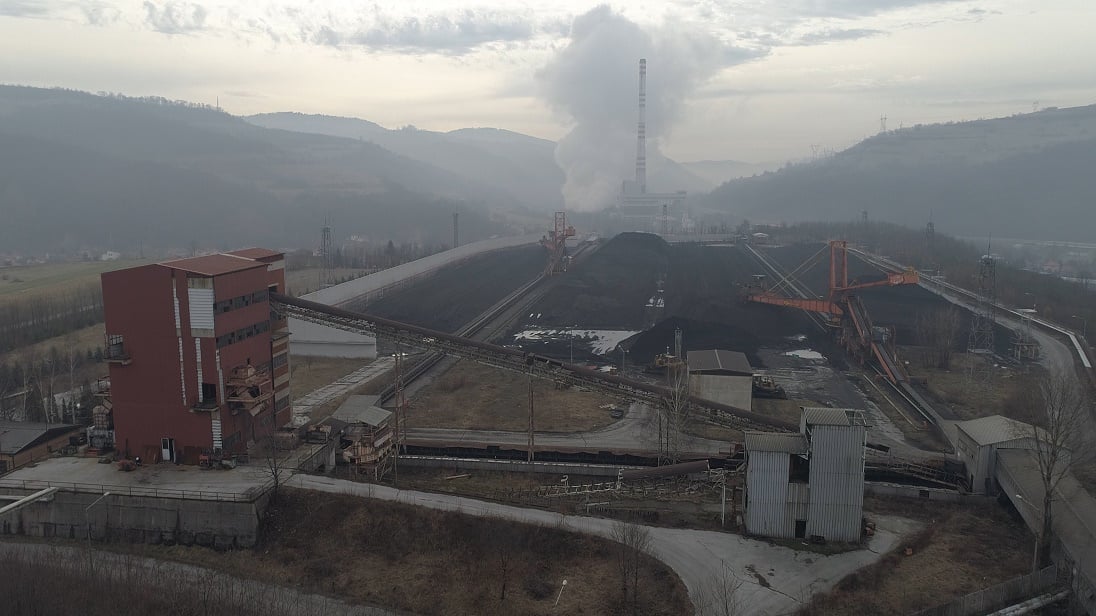
Kakanj Mine
According to the aforementioned staff establishment plan Zenica mine should reduce the number of employees by about 300, but that would also be good news because announcements that “Stara jama” will be closed after “Stranjani” are getting more serious, while the situation with underground mine “Raspotočje” is still uncertain. Zenica’s coal is of poorer quality, smaller quantities are being mined at great depths below the city, and the recent significant reduction in the use of this coal in ArcelorMittal is an additional economic problem.
.jpg)
Stara jama Mine Zenica photo: EPBiH
Currently, miners have difficulties digging and selling the coal to provide wages and meal allowance. Productivity is at the level from hundred years ago, and there is the problem of coal impurities. Otherwise, coal from underground excavations covers about 30% of the needs of BiH, while the rest comes from surface mines.
“Technologically, only Kreka Mine, although it is rather neglected, Banovići mine and possibly Đurđevik mine can survive”, assures Žurnal’s source, well informed about the reflections in Elektroprivreda BiH.
There is a plan or intention, both in Elektroprivreda and the competent ministry, as well as in the Government of FBiH, to close some mines, first of all in Zenica, then Breza, but it is not still known who will announce that and when.
“We should go through all these stages by the end of the year, and then we would know which mines will work in the future, which will work at reduced capacity, and which will not work,” claims Nermin Džindić, FBiH Minister of Energy, Mining and Industry.

Who will report the truth to the miners – FBiH Prime Minister Fadil Novalić (in the background) and Nermin Džindić, FBiH Minister of Energy, Mining and Industry
The total debts (taxes and contributions) of all coal mines in the Federation, including the Banovići Mine, amounted to around 330 million KM in 2008. That amount has tripled by the end of 2020!
“The total debts of all seven mines are almost 900 million KM, of which a significant part falls on debts to the pension and disability insurance, and to health insurance. Debt to Elektroprivreda BiH amounts to almost 200 million KM, whereof a portion of the debt relates to the suppliers and amounts almost 100 million KM. So, we can freely say that the situation in the mines is quite difficult, but it is not hopeless,” said Admir Andelija, Director General of Elektroprivreda BiH for Oslobođenje.
The closure of mines and the dismissal of thousands of employees, regardless of the fact that there will be a smaller part of miners among them, is not a popular political move. No one wants the “glory” of British Prime Minister Margaret Thatcher, whose government closed 165 mines in the ‘80s, and approximately 230.000 miners lost their jobs.
“The government will not solve miners’ problems by forcibly pumping money into the mines, bridging the service periods for whose inconsistency it is to blame. The problems will not be solved by putting the mining industry under the control of a state-owned company that is certainly already ruled by politics. It will be solved only by turning to simple principles of supply and demand and adapting to the laws of the market with maximum openness and readiness of individuals to take responsibility for their own lives into their own hands”, wrote Darjan Minov, Executive Director of the Liberal Forum.
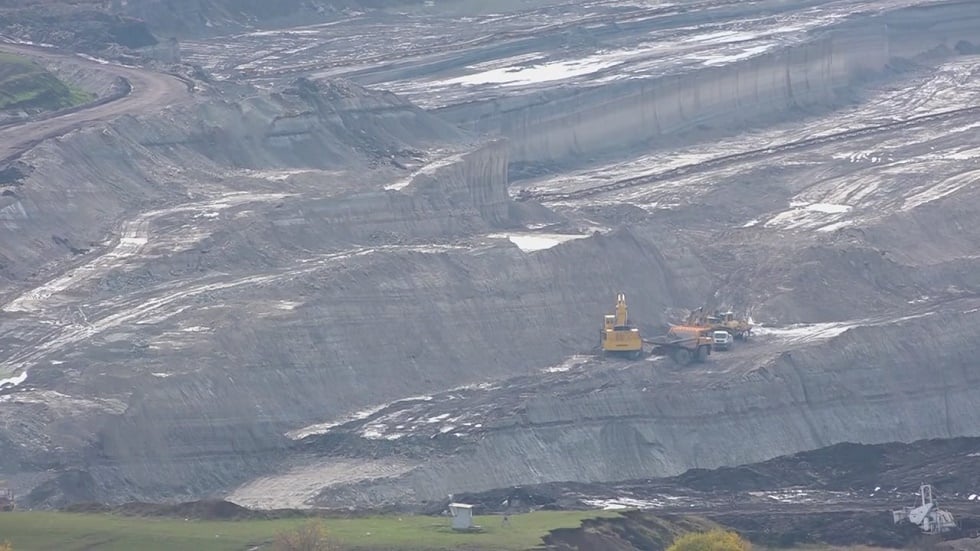
Although he spoke globally, everything can literally relate to Bosnia and Herzegovina as well. The mines were, same as Elektroprivreda BiH, places of employment by party preferences, of course excessive ones. At the same time, it brought profit to some. It was a public secret in Zenica that the minimum price of a job in a mine is 5.000 KM!
Officially, investments were made into the mines, but funds were also spent unintendedly. According to the available data, Elektroprivreda BiH has invested around 320 million KM in seven of its mines (Banovići mine is not part of its concern, it is under the direct management of the Federation Government). These are investments by procurements made by Elektroprivreda BiH. Only about 4 million KM in money were invested. This is where we arrive to perhaps the key problem.
“If they had invested in taking care of the miners, there would not have been the procurement of equipment that was mainly used for “financial gain”, the story told by the engineer employed in the mine and another one from Elektroprivreda BiH is identical.
Member of the Parliament Enver Bijedić, director of the Tuzla Salt Mine Aziz Čačković, mine employees Amir Tursunović and Amir Sušić and private entrepreneurs Dženan and Atif Mujkić were arrested in Tuzla in mid-February this year. The Prosecutor’s Office of Tuzla Canton suspects them of rigging a tender worth 5.5 million for the company “Mining & Drilling” from Gračanica.

“Few tenders, as far as I know, would go without arrests. I know of at least five tenders where the government, the mine and Elektroprivreda, were damaged for at least 10 million”, says a mining engineer. As everything has been reported to the investigative authorities, he does not want to talk about the details now.
A few years ago Žurnal had written about procurement of the Coal Transportation System and Machinery for Kakanj Brown Coal Mine. Equipment worth 2.7 million KM was bought in vain because Begići-Bištrani underground mine was not designed for this equipment. The contract was executed although people responsible had received a timely warning. This is just one example where completely useless equipment was procured, while the necessary one is almost regularly procured at “inflated” prices with suppliers known in advance. Simply said, public procurement for the mines contains the material for 5-6 “Ventilators” affairs!
“Equipment for excavation and expansion of the mining shaft was procured, and then it turned out it is useless since the system for transport of coal is not sufficient for even half of the excavated amount, it was only important to hurry up and buy it,” explains our source from the mine.
The allegations from Elektroprivreda about the millions invested in the modernization of deep mine production were best denied by Breza miners during last year’s strike, claiming that after everything, they had returned to digging coal with a pickaxe!? Elektroprivreda BiH has set aside just a little more for the longwall mining equipment of Raspotočje Mine than for the renovation of the building of its directorate!
Another phenomenon is becoming more frequent, and that is the engagement of private trucks and machines for mining operations, including engagement of workers of private companies. An example is the situation that happened in August of 2020, about which Žurnal wrote. A few days before 1.700 miners of the Kreka Mine were to suspend their work due to the unpaid July salary, the mine management signs a 1.1 million KM worth contract with the private company “Rudar” from Tuzla for the construction of underground openings!? This company earned 4.7 million KM from Kreka in three years.
“Politically sponsored crime in and around the mines made it impossible to invest money in the much-needed modernization of the mines, and especially in increasing the safety of miners at work. Instead, through criminal public procurement, deprived of any supervision and control, money in the mines has been for decades now going into the pockets of a small number of “specialized” private companies, whose owners often have interest links to politically powerful persons and corrupt party appointed management structures. The politically trapped judiciary and the party-run bureaucracy from the relevant ministries, as well as inspection bodies that turn a blind eye to numerous violations of the Occupational Safety Law, which literally push miners to their deaths, contribute to this”, wrote Almir Muhamedbegović, an electrical engineer with experience in the energy sector.
Žurnal has written about public procurements for the Mine and TPP Gacko. Companies were given multimillion contracts through a negotiated procedure. Jobs were given to companies from Serbia with only a few employees, which then hired subcontractors. Part of the operations was fictitious. Even machines under warranty were repaired, and some of them immediately malfunctioned.

MTPP Gacko
We also found evidence of over-employment in MTPP Ugljevik. As many as 546 workers were hired in this company on various bases during the 2018 election year! It is really a lot for a company that at the end of 2017 had exactly 1.891 employees. It was all done without a public vacancy, and they were employed to perform “various tasks in the company” for a period of one year. Just enough to have them working until after the election.

MTPP Ugljevik
However, these internal problems are of no interest to the European Union and its Energy Community. They want to eliminate the production of electricity from “dirty sources”, more precisely from coal. Bosnia and Herzegovina signed the Declaration on the Green Agenda for the Western Balkans in November 2020. In practice, this means agreeing to introduce carbon dioxide taxes and engaging in a higher number of renewable energy sources. What is especially painful for miners is the termination of subsidies for coal and the closure of coal mines and thermal power plants by 2050.
In order to reduce the emission of harmful substances Ugljevik Thermal Power Plant invested money in a desulphurization plant, but at the same time it had to increase the price of its produced electricity by 15 percent! Although the desulphurization project was also planned for Block 8 in TPP Kakanj, it is being abandoned after assessment was made that that the investment of 300 million KM is not profitable.
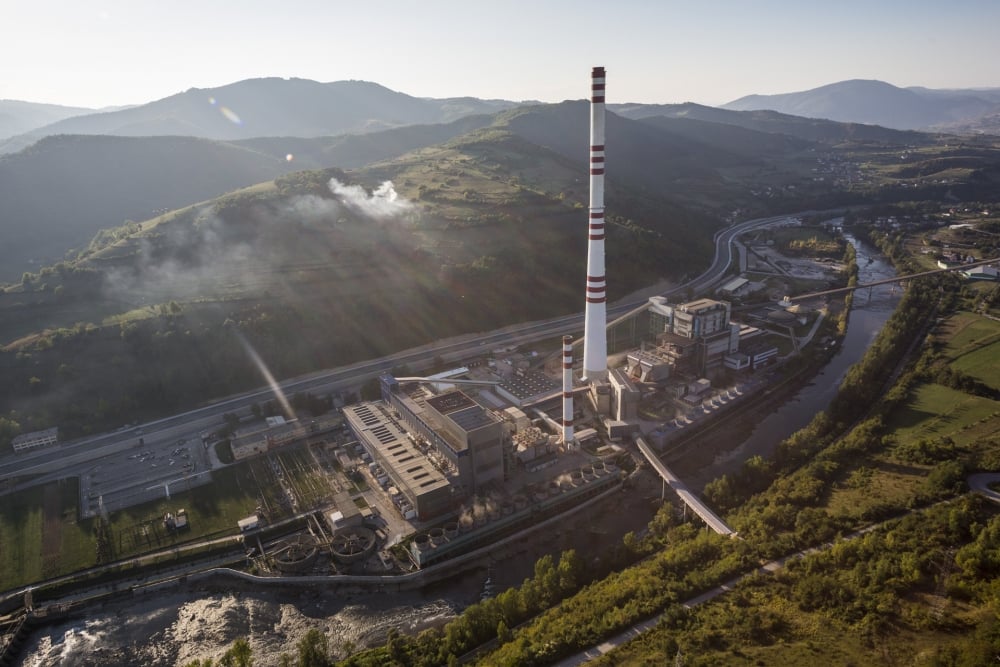
TPP Kakanj
From 2024, Bosnia and Herzegovina, but also Serbia, Kosovo and Montenegro, will have to include the so-called “tax” on carbon dioxide (CO2) emissions and accompanying harmful substances, which they do not pay now, in the price of electricity. This is the main reason why energy from coal has no perspective. The projected tax of 80 Euro per ton of CO2 emitted (currently 40 Euro) will mean at least 50 Euro more expensive KW/h of electricity. For comparison, the current selling price to households is 33 Euro.
It does not mean that authorities in BiH will respect what they sign. Instead of closing the thermal power plants, the construction of new blocks is announced, in Gacko, Ugljevik, Kakanj, Tuzla. For now, only the construction of the one in Tuzla is certain. The construction of Block 7 is one of the reasons for the Energy Community to impose sanctions on BiH.
“The continuation of the obsession with coal in BiH threatens to push the country deeper into the past. The biggest loser in the energy transition is the coal industry. Traditionally, miners have always been respected and well paid and it will not be the case anymore. That is why we in Europe are talking about a more just transition and that no one should be forgotten. The EU takes funds for this from the sale of CO2 emission permits. Electricity would be too expensive if that cost is to be included. The Federation of BiH will “get a headache” from the project of the new block of the thermal power plant in Tuzla for these reasons”, claims Janez Kopač, director of the Energy Community Secretariat.

Janez Kopač photo: FENA
However, preparatory works have already been carried out in Tuzla for the construction of Block 7, which is financed by a loan from the Chinese Import-Export Bank in the amount of 641 million Euro. According to the findings of Žurnal, the original plan was changed, so instead of the European one, all technology to be installed will be from China. The guarantor for the loan is the Government of the Federation and it is completely uncertain if the price of electricity at the time when Block 7 starts is operations, allegedly in 2024, will be sufficient to repay the loan.

TPP Tuzla
The only way will be a higher price of electricity, which leaves a number of economic consequences not only for Elektroprivreda. Exports to EU countries will also be questionable, because it is certain that the competition there will not allow sales from BiH at lower prices, especially since there is no way to eliminate CO2 emissions from impure coal.
“I had in 1987 asked the management of the Iron and Steel plant to start purchasing coal outside the country, because the coal in Zenica is also bad in terms of sulfur content - the city is suffocating in the emitted sulfur dioxide. This coal has 4.2 ÷ 4.9% sulfur, thermal power below 16.500 kJ/kg. It price reached 90 DEM/ t, and it is still a type of dust - thermal coal. They barely agreed, and we asked the then SIV (Federal Executive Council) to allow us to import. We imported from Colombia at a price of $ 25 / t (approx. 40 DEM / t). It had a thermal power of about 21. 500 kJ/kg and a sulfur content of 0.06% (approximately 70 times cleaner than the one from Zenica). We were never allowed to do it again, and we breathed nicely that winter ”, remembers Mirsad Đulbić from Zenica.

Mirsad Đulbić
One way or the other, there will be less and less underground coal exploitation in Bosnia and Herzegovina. For years now, the authorities have "pushed" this problem under the carpet for the sake of seemingly worn-out reason, social peace. The fate of the mines that are about to close is a story in which there are no innocents, starting from all governments in the previous years, competent ministers, then Elektroprivreda as the owner of the mines, all the way to the managements that changed by the rhythm of party winners.
(zurnal.info)






